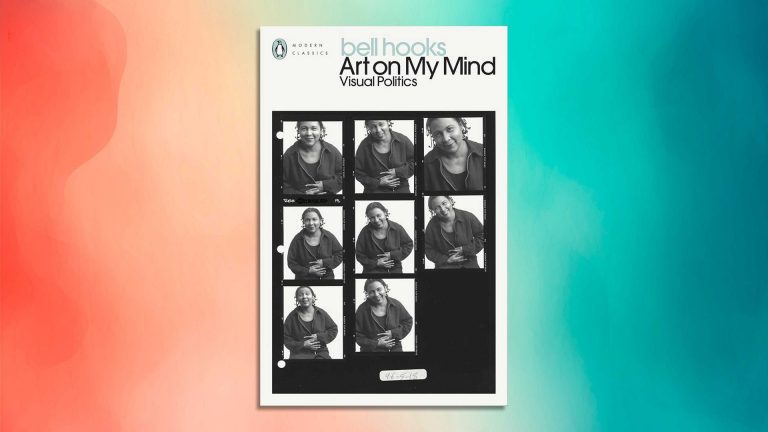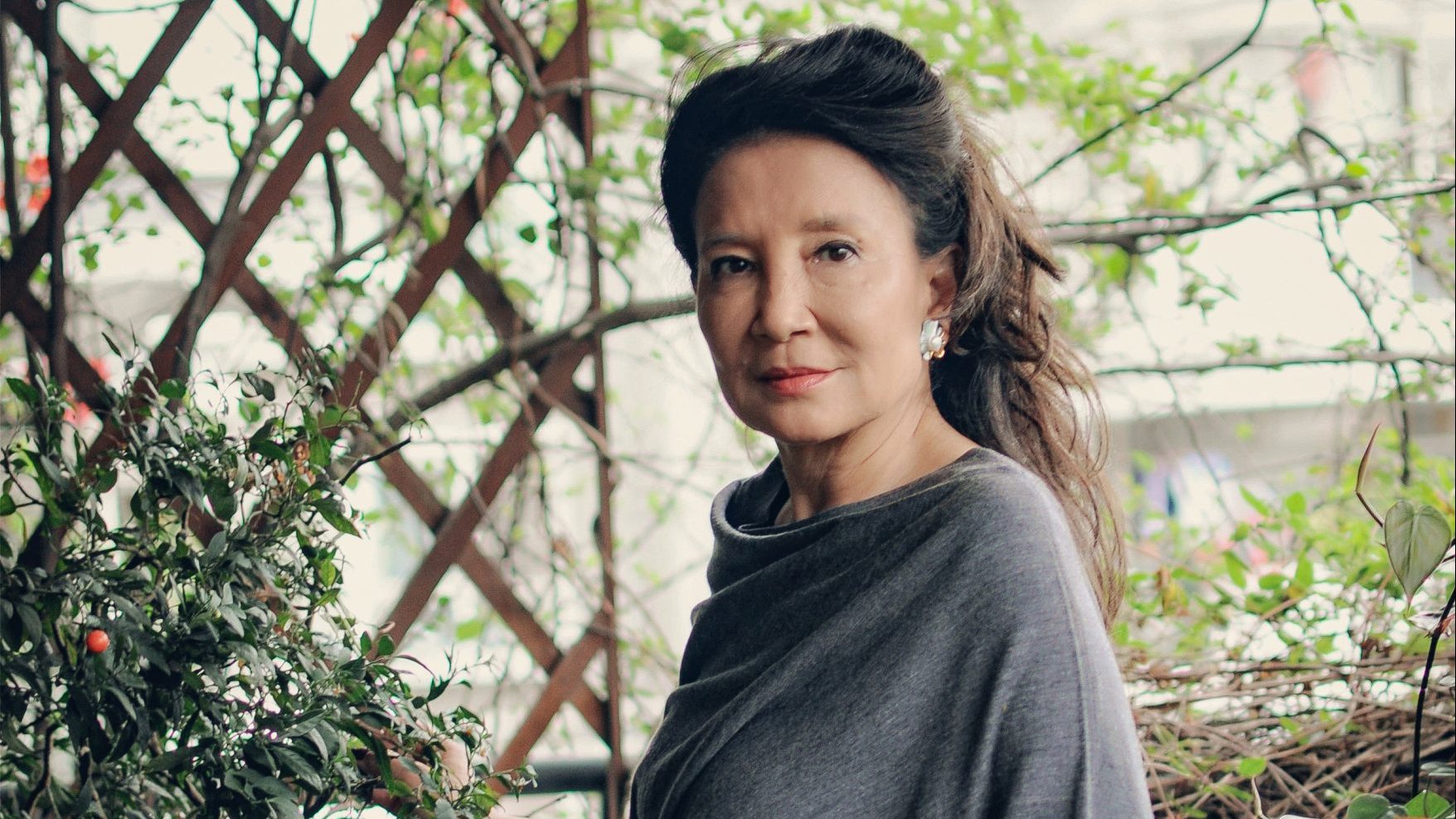Jung Chang is recalling the casual stroll in west London from half a lifetime ago that accidentally made her a writer. It was February 1988, and Chang’s mother was visiting from China.
“As we approached Hyde Park, my mother pointed to a stone on the ground and remarked how it looked just like the stone put on a baby girl’s feet to make three-inch golden lilies,” the 73-year-old Chinese-born British author explains from her Notting Hill home. This was a direct reference to the traditional Chinese practice of foot-binding.
That day, Chang learned that her grandmother was two years old when a millstone was placed on top of her feet to break the bones of her four smaller toes on each foot. Afterwards, the feet were tightly bound with a piece of cloth to stop the broken bones from recovering their shape.
The ancient ritual was carried out by Chang’s great-grandmother. She wept as she watched her infant daughter pass out from the pain. “I was horrified when I learned about this story,” says Chang. “But I asked my mother to tell me more about the past. Once she started talking, she couldn’t stop.”
Chang bought a tape recorder and started recording their conversations. “When my mother left London six months later, I had 60 hours of recordings,” she says. “After that, I decided to write my family’s history.”
The book she wrote, Wild Swans (1991), sold 10m copies. It recalls a century of Chinese history, told through the lives of three women: Chang’s grandmother, who became a concubine to a Chinese warlord in the 1920s; Chang’s mother, a prominent member of the Communist Party of China (CCP); and the author, who wrote about her childhood and early adulthood in China at a time of monumental change.
Now Chang has published Fly, Wild Swans, a sequel to her bestselling family memoir. “The book is a tribute to my mother, who gave me the freedom to become a writer,” she says.
The new book begins in March 1952 in Yibin, China, where Chang was born. A year later, the family moved 170 miles south, to Chengdu.
China had then recently emerged from more than two decades of civil war. The conflict was a battle between two groups competing to rule the Middle Kingdom. From 1644 to 1911, the Qing dynasty was in charge. Then, in 1912, Sun Yat-sen became the first president of the Republic of China. By 1927, the Kuomintang (KMT), Chinese nationalists, were at war with the Soviet-backed CCP. The latter group triumphed in 1949 – and their leader, Mao Zedong, declared the People’s Republic of China.
Chang’s parents were part of the communist elite. Her father had been made deputy director of the Department of Public Affairs in Sichuan, the second-largest of the Chinese provinces, which then had a population of 60 million. Chang’s mother was given a similar position in Chengdu, but had a lower ranking in the party because she was female.
Her parents had lost faith in the CCP by the time Mao launched the Great Leap Forward in 1958. The mass collectivisation agricultural-industrial project was meant to modernise the Chinese economy. Instead, in less than four years, an estimated 40 million people died of starvation.
“The main reason my father joined the [CCP] was because he had gone hungry as a child and he wanted everyone in China to have a full stomach,” says Chang. “The famine stopped in 1962 because Liu Shaoqi, and others [in the CCP] confronted Mao and forced him to change his policies, but Mao never forgot this and plotted revenge against his [perceived] enemies.”
This happened during the cultural revolution, which began in 1966: the decade-long class-conscious cleansing operation saw 1.5 million murdered across China. At Tiananmen Gate, Mao gave a speech encouraging China’s youth “to be violent and smash all things old”.
Chang stood as a witness to the barbarism that followed. School children were divided into two categories, depending on their family background. The reds were communists. The blacks, nationalists.
Aged 14, Chang witnessed a philosophy teacher at her high school being beaten up by fellow classmates. “They made her beg for mercy,” she says. “It was horrible.”
Amid the chaos, one pupil committed suicide: “I remember looking out of the window where I saw this vague shape in the distance in mid-air. I later learned it was a girl who had been branded a black. She couldn’t endure any more abuse, so she jumped from the window.”
Chang subsequently avoided school and frequently had “crazy nightmares”.
“Mao allowed teenagers to unleash their sadistic impulses and gave them a licence to be violent, to destroy and to torture,” she says. “Up until that point, I had revered Mao as a God-like figure, but I gradually came to question that position and eventually began to loathe the society I lived in.”
In August 1966, Chang’s father wrote to Mao, telling him he had the power to halt the violence he was stoking across China. The chairman never responded. But Chang’s parents eventually received an answer, albeit indirectly: they were driven to labour camps on the eastern edge of the Himalayas, where life was harsh.
Chang’s mother was asked by the party to denounce her husband, but she refused. “My parents’ marriage was imperfect, but the loyalty my mother showed to my father set an example of how to behave in extreme circumstances,” says Chang. “For refusing to kneel before Mao, my father had his ribs broken, he was temporarily blinded in one eye, driven insane, and eventually died from a heart attack, aged 54, in early April 1976.”
That September, Mao died, aged 82. The father of Chinese communism was replaced by Deng Xiaoping, who became China’s paramount leader, aged 74, in 1978.
Under Deng’s rule, the authoritarian rules of a one-party communist system never went away. But there were enormous changes. China opened to the west for business. Chinese state capitalism also gave private businesses room and autonomy to flourish. Foreign investment was welcomed, and hundreds of millions were lifted out of poverty.
Suggested Reading

We need bell hooks more than ever
The same year Deng grabbed power, he also changed China’s education system. Students who received top marks in China’s national examination were suddenly eligible for scholarships abroad. Chang was among them. With 13 other Chinese students – one of whom doubled as the political supervisor – she landed in London on September 13, 1978.
It was like arriving on another planet, Chang recalls. She tried to engage in small talk with Londoners by asking them when they had consumed their last meal. Up until that point, Chang’s limited English was largely derived from communist propaganda slogans: “We learned phrases like: ‘hello, have you eaten?’ These had been written in textbooks by people selected by Mao for their political reliability, but they had never actually spoken any English to foreigners.”
Chang and her fellow students were also under strict instructions not to visit any pubs. “We were warned they were full of indecent nude women,” says Chang. “When I eventually snuck out into a pub one day, I was rather disappointed to see several elderly men sitting around small tables drinking pints of beer!”
By the mid-1980s, Chang had become the first person from Communist China to obtain a PhD from a British university. She received a doctorate in linguistics from York University. Meanwhile, her optimism about China continued. People’s Communes had been brought in by Mao to control China’s then 550 million peasants. But in 1984 they were abolished altogether by Deng Xiaoping.
The Deng family also hailed from Sichuan. Chang became a close friend to Deng Xiaoping’s half-sister, Deng Xianfu. “We called her Auntie Deng. She was a very open-minded person,” says Chang. “Prior to the cultural revolution she was my next-door neighbour, and we got on very well.”
In 1985, Auntie Deng suggested to Chang that she was the perfect candidate to write a book about her half-brother. “I was touched by her request, so I initially agreed,” she says. “But after some research, I began to have some doubts. I felt the Dengs might not be pleased with the honest book I would write, and feared it could even bring Auntie Deng trouble, so I changed my mind.”
By the time Wild Swans was published in 1991, Chang had become a British citizen and married twice. Her second husband is the Irish historian Jon Halliday.
The couple co-published Mao: The Unknown Story (2005), which achieved commercial success on a par with Chang’s debut book. “Mao was without any warm human feelings, and he was indifferent to the death and suffering he caused in China,” says Chang. “He was also very single-minded in his pursuit of power.”
Chang and Halliday spent 12 years researching the political biography, which portrayed Mao as a sadistic monster. They travelled to China, Russia and the United States, talking to hundreds of historical witnesses, including Mao’s family members, friends and former colleagues. They interviewed several prominent politicians, too, including two former US presidents, and former US national security adviser and secretary of state Henry Kissinger.
In July 1971, Kissinger secretly visited Beijing, laying the groundwork for a famous meeting in February 1972 between President Nixon and Mao, which ended more than two decades of hostile diplomatic relations between the US and communist China.
“Kissinger became the biggest cheerleader for Mao in the west, and he made a lot of money by doing this,” says Chang. “In 2011, Kissinger flew to China to attend a celebration marking 90 years since the founding of the Communist Party, where propaganda songs were sung lauding Mao.”
Chang’s other books include Empress Dowager Cixi: The Concubine Who Launched Modern China (2013) and Big Sister, Little Sister, Red Sister: Three Women at the Heart of Twentieth- Century China (2019). But her co-authored Mao biography was a game-changer. It meant that obtaining a visa to return to China to visit family became difficult and intrusive.
Chang was subsequently required to make regular contact with Beijing’s state security. In Beijing, they would visit Chang’s hotel and make a list of Orwellian demands, including that she did not speak to “sensitive people”.
Chang mentions how her Notting Hill home was broken into in the mid-2000s. Oddly, no damage was done. But the intruders removed plants from her outside balcony. “This was obviously a subtle message where they were saying: ‘we can get to you if we want to’.”
Was it the work of the United Front Work Department, who act as the CCP’s arm for dealing with overseas Chinese as well as an array of groups inside China? “Oh yes. That goes without saying,” she says.
Chang has not visited her homeland since 2018. That year, Xi Jinping, China’s president and general secretary of the CCP, made himself supreme leader of the country, and permanently changed the constitution.
One of Xi’s first orders was to make any insults made to Chinese revolutionary heroes a crime punishable by imprisonment. “At that point I realised that as a biographer of Mao, if I set foot in China I would end up in prison,” says Chang.
But China’s rapid drift back towards a more extreme form of authoritarianism was already in motion, Chang stresses. She sees 2012 – the year Xi came to power – as a turning point.
Since then, there have been two major noticeable changes. “First, China began to see the west not as a friend but as a foe. Second, Xi is genuinely devoted to Mao,” Chang concludes. “Today, Mao’s portrait is on Tiananmen Square, and his corpse is still there for people to worship.”
Fly, Wild Swans: My Mother, Myself and China by Jung Chang is published by William Collins
JP O’Malley is a cultural critic and journalist



